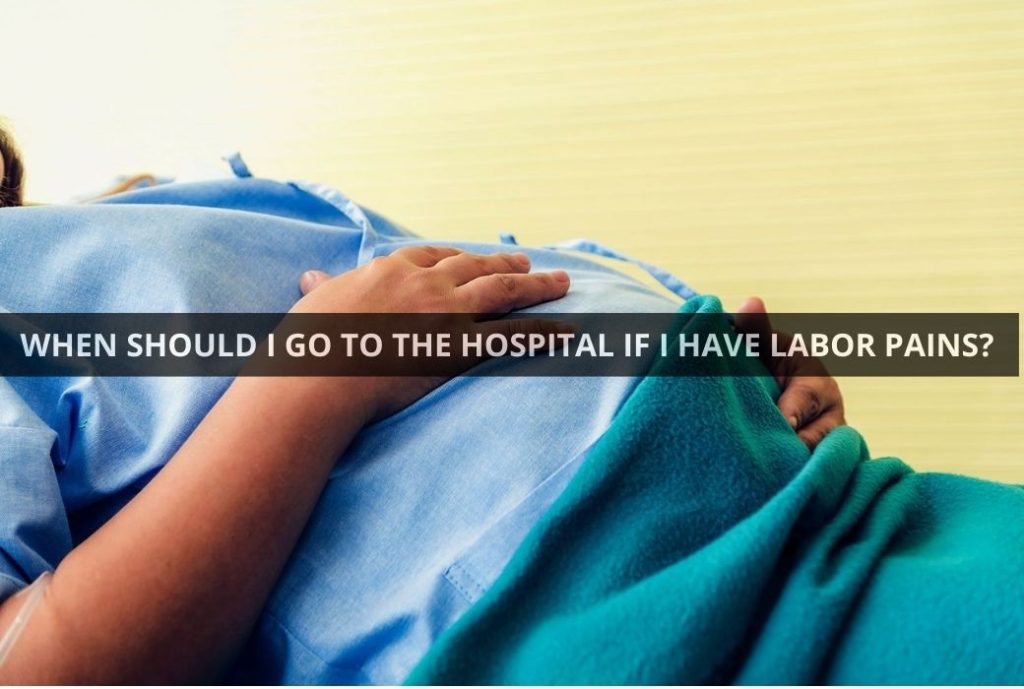If you see fluid leaking and thick discharge with regular contractions, it may be that labor has begun.
As you approach the last month of your pregnancy, you begin to wonder when to go to the hospital. This is especially true for mothers who are pregnant for the first time. However, when labor begins, the signs are usually clear, so if you experience the symptoms we are going to introduce today, you should go to the doctor right away.
It is very important to go to the hospital as soon as possible if an abnormal situation occurs, such as heavy bleeding, prolonged baby immobility, or fever.
FUNCTIONS OF THE BODY JUST BEFORE CHILDBIRTH
Each woman’s body is different. But we often wonder what is the difference between a woman who gave birth at 38 weeks and a woman who gave birth at 40 weeks.
In fact, the answer to this question is not yet clear, which in fact may depend on a set of factors that trigger labor.
In particular, hormonal and biochemical changes can accelerate labor, some of which are somewhat complex, but include:
- The concentration of synthesized progesterone in both the ovaries and placenta decreases during the hours before delivery.
- Increases levels of oxytocin, a substance that stimulates uterine contractions.
- Both the fetus and placenta release some topical substances that can cause labor.
Isn’t this really interesting? But doctors today don’t know exactly why these hormonal changes occur at specific times. That’s why I advise you to go to the hospital when the fetus gives birth signals that accelerate all these changes.
A FEW SIGNS OF LABOR PAIN
Don’t worry! You may notice it as soon as the pain starts. The most common symptoms in this case are:
Dew
The cervix is the lowest part of this organ that is closely related to the vagina. So a small passage is inside it and gradually expands so that the fetus can come out of the world.
However, during pregnancy this space is filled with a gelatinous substance that prevents the entry of microorganisms that can affect intrauterine development. Then, when labor begins, this substance is expelled through the genitals.
In other words, dew is the escaping of the mucus blocking the entrance to the uterus, and when a little blood is mixed, it is called blood dew. Usually a few drops of blood come out, but there are pregnant women who come out a lot like menstruation. Dew is a fairly obvious symptom that signals that labor is approaching, and it is a natural symptom. And dew can also occur with contraction pain. If you experience any of these symptoms, you should go to the hospital immediately!
Analgesic
During the second half of your pregnancy, you are more likely to experience a pain called Braxton Higgs contraction. In general, the pain is not long-lasting, irregular, and painless.
But pain relief is different. When analgesia occurs, abdominal tension is at its maximum and the time between each contraction is regular. The duration of each analgesia is 1 to 2 minutes, and the duration between them is somewhat similar.
Because this labor continues until the baby is born, the contractions remain constant during the hour you are supposed to go to the hospital, which can be very painful.
Amniotic fluid discharge
You already know that there is amniotic fluid inside the womb and the baby is floating there. However, this amniotic fluid is drained out when the cervix is sufficiently dilated and the baby begins to come out.
Drainage of amniotic fluid is usually a clear signal and occurs in the hospital shortly before delivery. If it occurs when contractions begin or when the dew is shining, it is known as premature rupture of the amniotic membrane and you should see your doctor as soon as possible.
Because the baby has not yet been born, it still needs amniotic fluid. In some cases, the obstetrician-gynecologist may induce labor to avoid consequences, such as infections, that can be a major problem in the short term.
Best to be ready to go to the hospital!
You never know when labor will start, so it is better to prepare in advance. So, be prepared for all possible emergencies before you reach 37 weeks, and keep your personal and baby belongings in a maternity bag. If the pain is too severe, you can’t take care of these things.
Also, if the hospital is far from home or if it is likely to take a long time due to traffic congestion, it is good to plan ahead for this area as well.

